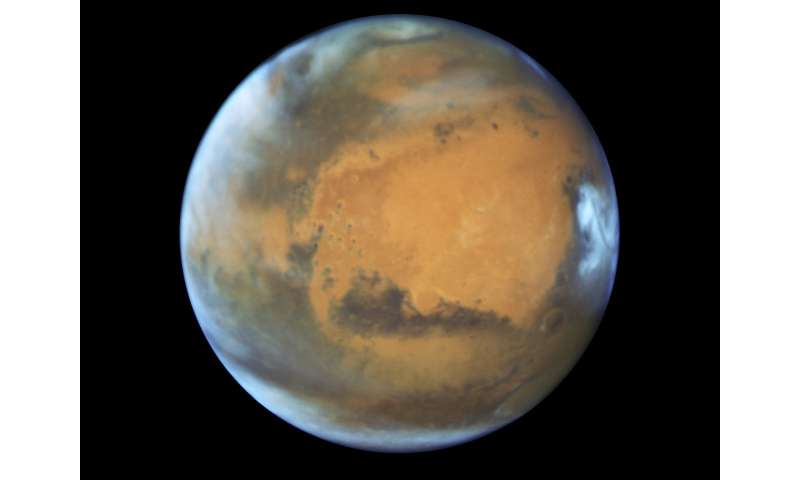Best of Last Week – Terraforming Mars not possible, ending traffic jams and a switch that controls muscle development

It was a good week for physics as a team at the National High Magnetic Field Laboratory reported that a material already known for its unique behavior carries current in a way never before observed—they found that cuprates carry current differently than other metals. And students at the University of Massachusetts reported on the part they have been playing in the DarkSide-50 detector project—the project is based deep beneath the Apennine mountains in Italy and is focused on searching for invisible dark matter. And a team at the SLAC National Accelerator Laboratory teamed up with AI to solve some of the toughest science problems—such as dealing with the massive amounts of data produced by the Large Hadron Collider.
It was also a good week for space news as a team at the Field Museum in Chicago reported that they had found blue crystals in meteorites that showed that the sun went through the 'terrible twos'—a time of more activity than we see today. And after studying CO2 sources on Mars, a pair of researchers at the University of Colorado declared that terraforming Mars is not possible using present-day technology. Also, a team from the University of Cambridge and the Medical Research Council Laboratory of Molecular Biology announced they had identified exoplanets where life could develop as it did on Earth because they have chemical conditions similar to those here on our planet.
In other news, a combined team of economists from the University of Cologne in Germany and Cornel University in the U.S. proposed a toll-based system they suggest could eliminate traffic jams. And a team from several institutions in Australia announced that they had developed new anti-cancer drugs that put cancers to sleep—permanently. And a group at the University of California found that DNA repair after CRISPR cutting is not at all what people thought—and offered some insights into why the procedure meets with different degrees of success in different types of cells.
And finally, if you have found that you do not respond well to aerobic exercise or strength training, you might have a biological pathway in your body to blame. A team at the Joslin Diabetes Center found that a muscle 'switch' may control the benefits of exercise, allowing or preventing muscle growth.
© 2018 Science X